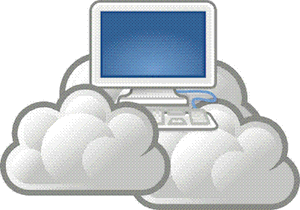Taxing Cloud Computing Service Providers… and Users
 In the wake of the cell phone photo heist (and publication) of the private images of several Hollywood celebrities back in September, a wide discussion was held about cloud computing, particularly with regard to security issues. Those dealing with using “the cloud” for business purposes should concern themselves not only with security, though, but also with the tax implications of cloud computing. This issue is a challenging one, since the laws regarding the topic vary dramatically from state to state.
In the wake of the cell phone photo heist (and publication) of the private images of several Hollywood celebrities back in September, a wide discussion was held about cloud computing, particularly with regard to security issues. Those dealing with using “the cloud” for business purposes should concern themselves not only with security, though, but also with the tax implications of cloud computing. This issue is a challenging one, since the laws regarding the topic vary dramatically from state to state.
One recent case bringing this issue to life was Matter of SunGard Securities Finance LLC, where a New York administrative law judge ruled against the state’s Division of Taxation. SunGard offered a service it called “Smart Loan” to financial industry customers. SunGard did not pay a sales tax on the money it received for offering this service. New York audited SunGard and went after these taxes as the sale of tangible personal property. The judge, however, ruled against the state, ruling that what SunGard provided was an information service exempt from tax. The National Institute of Standards and Technology recognizes three types of cloud computing: Software as a Service (SaaS), Platform as a Service (PaaS), and Infrastructure as a Service (IaaS). SaaS involves customers using the provider’s software through a cloud computing infrastructure. The service at issue in the SunGard case was an example of SaaS. QuickBooks Online is another example.
Of course, sales of tangible personal property are taxable in most instances, while sales of services and intangible property are generally not taxable, unless the law expressly carves out an exception to make them taxable. In New Jersey, tax authorities do not view SaaS as the sale of personal property. TB-72, issued last year, declared that SaaS “only provides the customer with access to the [provider’s] software and the software is not ‘delivered electronically,'” it does not meet the New Jersey Statutes’ for a taxable sale of personal property. However, SaaS that qualifies as an information service is one of those specific carve-outs by the statute, which makes it taxable. Examples of a taxable information service include Westlaw, LexisNexis, CCH, and RIA.
So, if a SaaS is taxable, to which state do you owe the tax? The answer to this question is also unclear. Tennessee pins the source of the sale (and state to whom the tax is owed) to the location of the service provider’s computer server. Arizona law places the source as the location of the purchaser. New York law sources the sale to the location where the purchaser accesses the service.
Another issue that those using and providing cloud computing services must acquaint themselves with is nexus, or the level of business activity a company must attain before a state can begin imposing taxes. In the past, this meant a physical presence in the state. Some states, however, have begun moving toward defining nexus to include other presences besides physical, such as economic nexus or affiliate nexus. At this point, tax authorities have offered extremely little guidance regarding what is required to create a nexus.
For reliable answers regarding the taxation of cloud computing and its effect on your business, consult the tax attorneys at Samuel C. Berger, P.C. and CPAs at S.C. Berger, P.C. They can arm you with the information and advice you need in order to make wise decisions regarding your business and the cloud. To consult our attorneys and CPAs, contact us online or call (201) 587-1500 or (212) 380-8117.
More Articles:
Corporate Officer’s Inability to Cash Bonus Check Trips Up Entity’s Tax Deduction
MBA Student’s Attempt to Deduct Tuition Fails in the Tax Court
Photo credit: Πrate at Wikimedia Commons.
 Hackensack, New Jersey Cloud Computing Tax Lawyer Samuel C Berger, PC Home
Hackensack, New Jersey Cloud Computing Tax Lawyer Samuel C Berger, PC Home



